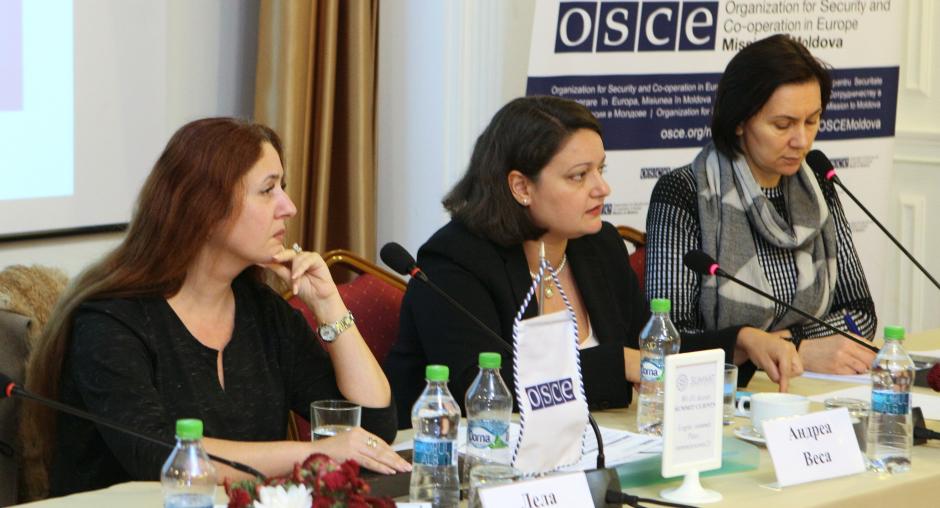Lawyers’ capacity to tackle hate crimes strengthened by OSCE Mission to Moldova

The sixth Human Rights Club of the year was organized by the OSCE Mission to Moldova on 26 October 2017. The meeting provided legal professionals from both banks of the Dniester/Nistru River with an opportunity to discuss how to differentiate between an act of discrimination and a hate crime when identifying the law that has been violated in a given case.
Forty-five lawyers from both banks of the Dniester/Nistru River discussed the importance of upholding diversity and keeping in check actions that negatively impact members of ethnic minorities or marginalized groups in society. They deliberated upon key notions, including novel concepts, such as direct and indirect discrimination, hate crime, and hate speech online. Experts presented the protection mechanisms available in Moldovan legislation as well as international standards, and provided practical examples of how to initiate litigation in cases where individuals have been targeted by such actions.
“Incidents resulting in discrimination or leading to a hate crime have destabilizing effects on society as a whole. With the increasing use of various forms of communication technologies, legal professionals must learn how to differentiate among these concepts and protect everyone’s rights, leaving no one vulnerable,” said Andreea Vesa, the Human Rights and Democratization Programme Manager at the OSCE Mission to Moldova, in her opening remarks.
The Human Rights Clubs are part of a year-long project that facilitates the exchange of information among lawyers from both banks of the Dniester/Nistru River. Other meetings conducted in 2017 focused on a wide range of topics, including the documentation of the population and the ethical norms governing the legal profession.
